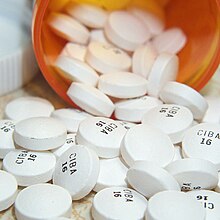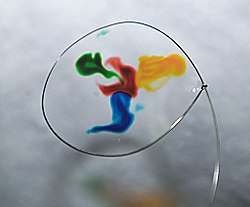 The Food and Drug Administration on Wednesday disputed a drug company’s claim that pharmacies can no longer produce less expensive versions of a drug long used to reduce the risk that women will give birth prematurely.
The Food and Drug Administration on Wednesday disputed a drug company’s claim that pharmacies can no longer produce less expensive versions of a drug long used to reduce the risk that women will give birth prematurely.
The statement was aimed at defusing a controversy that erupted after the agency approved the drug Makena to prevent preterm births. Makena’s owner, KV Pharmaceutical of St. Louis, is charging $1,500 a dose for the drug. The same compound had been available for years for about $10 to $20 a dose.

 Health Glance
Health Glance
 When a drug to prevent babies from being born too early won federal approval in February, many doctors, pregnant women and others cheered the step as a major advance against a heartbreaking tragedy. Then they saw the price tag.
When a drug to prevent babies from being born too early won federal approval in February, many doctors, pregnant women and others cheered the step as a major advance against a heartbreaking tragedy. Then they saw the price tag. Push a cart down a supermarket aisle, and you’ll pass a kaleidoscope of color. The use of artificial dyes
Push a cart down a supermarket aisle, and you’ll pass a kaleidoscope of color. The use of artificial dyes  Home health agencies, hospitals and consumer groups are complaining that a new rule intended to curb unnecessary Medicare spending will make it harder for senior citizens to get home care services.
Home health agencies, hospitals and consumer groups are complaining that a new rule intended to curb unnecessary Medicare spending will make it harder for senior citizens to get home care services.
 At the supermarket, most shoppers are oblivious to a battle raging within U.S. agriculture and the Obama administration’s role in it. Two thriving but opposing sectors — organics and genetically engineered crops — have been warring on the farm, in the courts and in Washington.
At the supermarket, most shoppers are oblivious to a battle raging within U.S. agriculture and the Obama administration’s role in it. Two thriving but opposing sectors — organics and genetically engineered crops — have been warring on the farm, in the courts and in Washington.






























